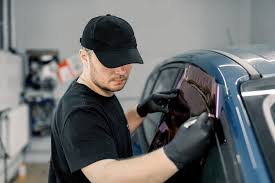
In the intricate ecosystem of the automotive industry, vehicle appraisers stand as crucial guardians of value, wielding expertise to determine the worth of automobiles. Their meticulous assessments play a pivotal role in various scenarios, from facilitating fair transactions to aiding insurance claims and legal kfz gutachter regensburg. In this article, we delve into the realm of vehicle appraisers, exploring their duties, qualifications, and significance.
Understanding the Role:
Vehicle appraisers are professionals tasked with evaluating the value of automobiles. Their assessments are based on a comprehensive analysis of factors such as the vehicle’s condition, age, mileage, market demand, and any relevant modifications or customizations. Whether it’s a classic car, a luxury sedan, or a commercial vehicle, appraisers employ specialized knowledge to provide accurate and impartial valuation reports.
Duties and Responsibilities:
The responsibilities of a vehicle appraiser encompass a wide range of tasks, including:
- Conducting Inspections: Appraisers meticulously examine vehicles, both visually and sometimes mechanically, to assess their overall condition and identify any defects or damage that may affect their value.
- Researching Market Trends: Staying abreast of market trends and fluctuations is essential for accurate appraisal. Appraisers analyze data on comparable vehicle sales, auction results, and industry reports to determine fair market value.
- Preparing Reports: Appraisers document their findings in detailed reports, outlining the factors considered and providing a clear rationale for the assessed value. These reports serve as essential references for buyers, sellers, insurers, and other stakeholders.
- Providing Expert Testimony: In legal proceedings such as insurance claims, disputes, or litigation, appraisers may be called upon to provide expert testimony regarding vehicle valuation. Their impartial expertise can help resolve disputes and ensure fair outcomes.
Qualifications and Expertise:
Becoming a certified vehicle appraiser requires a combination of education, training, and experience. While specific requirements vary by jurisdiction and employer, typical qualifications include:
- Automotive Knowledge: A thorough understanding of automotive mechanics, components, and systems is essential for accurately assessing vehicle condition and value.
- Appraisal Training: Many appraisers undergo formal training programs or certification courses offered by industry organizations and educational institutions. These programs cover appraisal methodologies, valuation techniques, and legal considerations.
- Industry Experience: Practical experience in the automotive industry, such as working as a mechanic, dealer, or insurance adjuster, provides valuable insights into vehicle valuation and market dynamics.
- Licensing and Certification: In some jurisdictions, vehicle appraisers are required to obtain licenses or certifications to practice legally. These credentials typically involve passing examinations and meeting certain education or experience requirements.
Significance in the Automotive Industry:
The role of vehicle appraisers extends far beyond mere valuation. Their expertise and impartiality ensure transparency and fairness in automotive transactions, helping buyers and sellers make informed decisions. Additionally, appraisers play a vital role in risk assessment for insurers, ensuring that vehicles are adequately covered and accurately valued in insurance policies.
In conclusion, vehicle appraisers serve as invaluable assets in the automotive industry, wielding expertise to determine the true worth of automobiles. Their meticulous assessments provide clarity and confidence to buyers, sellers, insurers, and other stakeholders, fostering trust and integrity in automotive transactions.